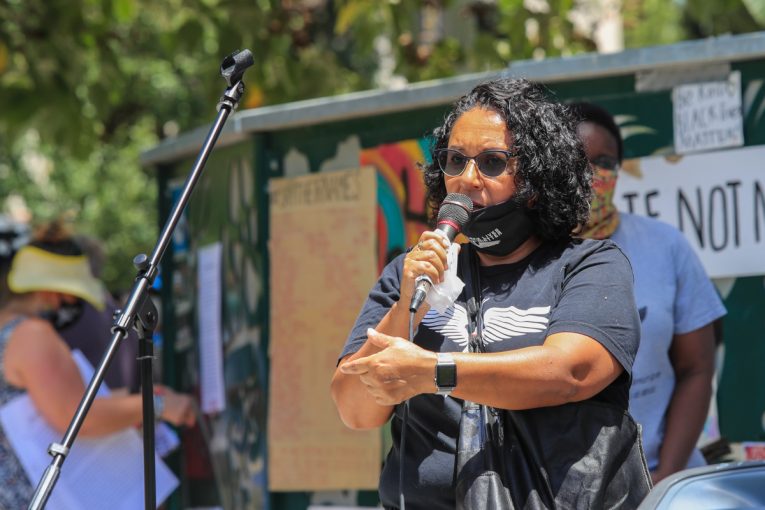

By David M. Greenwald
Executive Editor
Davis, CA – Emerging in the last two weeks have been challengers in both open council races. Kelsey Fortune who ran in the District 5 race in 2020 will take on Dan Carson in the first district and Adam Morrill will run against Gloria Partida in the fourth. There may be more emerging before the deadline to announce.
Both incumbents could be vulnerable for their own reasons, as we shall discuss shortly. With new district boundaries rather than at-large elections, there may be particular vulnerabilities that did not exist previously.
But in the last 20 years, incumbents in Davis have fared very well. In 2004, Michael Harrington was defeated in the election punctuated by the Steve Gidaro letter. In 2012, both Stephen Souza and Sue Greenwald went down to defeat.
Since then, every incumbent has won.
But there are reasons to believe that things could be different this time.
Both Gloria Partida and Dan Carson emerged from a large field four years ago to finish first and second respectively. Both could be  considered vulnerable at this point
considered vulnerable at this point
Most know the story of Dan Carson over the past six months. His decision to be the face of the writ filed against the opponents of Measure H over ballot language rubbed many in the community the wrong way, and probably contributed to the heavy loss by Measure H and has turned him into a target and a lightning rod for many in the slow growth community and perhaps beyond.
While Gloria Partida may not have that negativity associated with her, there is question about whether her politics and priorities line up with those of her district. She may not be the lightning rod of the slow growthers, but twice she was on the subcommittee of DISC, supporting the measure—even though the strong majority of her district, concerned about traffic effects, was opposed to DISC.
With Dan Carson there is the extra incentive after he was so public in his support for the failed project.
Still, it is hard to know what the voters will carry over from a land use debate. Traditionally, supporting failed land use projects has not harmed incumbents. For example, in 2005 Measure X went down to a 60-40 defeat; nevertheless, the three incumbents who ran for reelection all won—one of them finished first in 2006, another first in 2008, and Souza finished a strong second in 2008.
Two of the three incumbents that lost this century did so in the fall out of scandals. There was, as mentioned, the 2004 Gidaro letter that was seen as a dirty trick—that worked. In 2012, Sue Greenwald was caught up not only in the feud with former Mayor Ruth Asmundson but in her own controversy when her husband was caught on video removing campaign lawn signs.
There is also the fact that both 2004 and 2012 saw the emergence of strong challengers—Don Saylor and Stephen Souza in 2004, Dan Wolk, Lucas Frerichs and Brett Lee in 2012.
Right now, Dan Carson looks perhaps more vulnerable than Gloria Partida, but Gloria Partida, at least on paper, seems to have the stronger challenger. But more candidates may arise.
One wild card in all of this is district elections. These are not city-wide elections. Instead, a specific district gets to vote and that could change the calculous somewhat. We simply don’t know how those geographic areas will vote for each candidate.
In 2020, the two districts that had incumbents winning both saw the incumbents easily be reelected. Of course, neither Lucas Frerichs nor Will Arnold looked particularly vulnerable at that time.
Frerichs would double up Larry Guenther in the third. Will Arnold had two opponents and took about half the vote, easily outpacing both Dillan Horton and Colin Walsh.
The disconnect between votes on land use projects and votes for candidates has been particularly stark. Since 2010, voters have opposed three of the five land use measures on the ballot, but voted for no candidates that opposed putting a project on the ballot.
It will be interesting to see what happens this time, as more than 60 percent of the voters in Partida’s district opposed both measures. She strongly supported both measures.
Will mere difference of opinion on a land use measure be sufficient against what looks like a strong candidate on paper? Time will tell.
Key questions remain of course—who else will emerge in either district and what issues will take on most importance in Davis going forward? Will it continue to be housing and land use issues?
Housing in particular is an interesting issue for Davis because lack of affordable housing appears to be by far the biggest issue, there is considerable concern about housing—and yet the voters continue to vote against land use projects.

